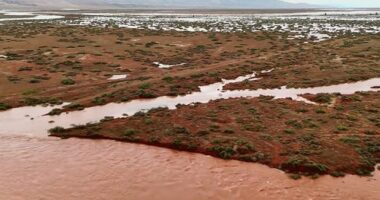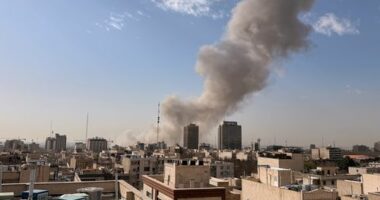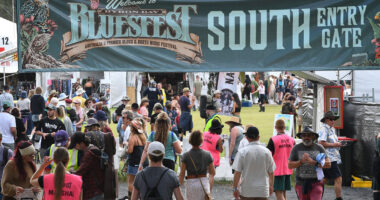Share this @internewscast.com
After this date, Bangladesh’s government won’t allow end-of-life ships to be imported by scrapyards that are not compliant with the Hong Kong International Convention for the Safe and Environmentally Sound Recycling of Ships. They will have to obtain a “green” certificate or face closure.

Shipcutters such as Delwar Hossain are engaged in dirty and dangerous work. Source: SBS / Louis Dai
The president of the Bangladesh Ship Breakers and Recyclers Association (BSBRA), Mohammed Zahirul Islam, estimates 80 per cent of the workforce will lose their jobs as a result.
And the industry’s critics would like the number to be zero.
The world’s ship graveyard
Chittagong, also known as Chattogram, is Bangladesh’s second largest city and the world’s leading ship breaker by steel tonnage.
In the last five years of records, there were at least 38 deaths and 177 injuries in Bangladeshi shipbreaking yards, according to IndustriALL Union Group, an international trade union.

Once cargo ships are put out of service and bought by Bangladeshi scrapyards, they are beached ashore to be dismantled. This practice is known to be extremely polluting as toxic materials found on old ships contaminate ocean waters and soil. Source: SBS / Colin Cosier
Delwar has previously injured his back, and his cough suggests that more damage is taking a toll.
“Honestly, I don’t enjoy it. But I need to take care of my family so I don’t have a choice.”
Accusations of greenwashing
They also say the Hong Kong convention is flawed and doesn’t address key issues that have long plagued the industry: labour rights, pollution, and the skirting of an existing treaty that prevents wealthy countries and companies from sending hazardous ships to Bangladesh.

Some scavenged items from broken ships such as washing machines, life jackets, and kitchen sinks end up at flea markets and in people’s homes. Source: SBS / Colin Cosier
The NGO Shipbreaking Platform (NSP), a global coalition of organisations fighting harmful shipbreaking practices, said in a 2023 statement that the Hong Kong convention would “only serve the interests of shipping companies” and lacks the same level of regulation of the Basel Convention, an international treaty that bans toxic waste disposal in developing countries.
It says a cash buyer is a middleman company that buys a ship and then registers it with a PO Box shell company in a tax haven.

Environmental activists say ocean-going vessels are riddled with toxins such as asbestos, heavy metals, oils, and carcinogens. Contaminated spills pollute ocean waters and soil, posing risks to scrapyard workers who often lack proper safety equipment. Source: SBS / Colin Cosier
Additionally, the law of the sea places a ship’s responsibility with the ship’s flag state, so cash buyers use flags from countries with lax maritime law enforcement standards.
In this way, a shipping company from a country such as Australia, Greece or China can sell a ship to a cash buyer who, in turn, sells the ship for scrapping in Bangladesh.
“These gaps are what’s going to make this treaty ineffective as a result.”

Bareesh Chowdhury of the Bangladesh Environmental Lawyers Association (BELA) is among the critics of the Hong Kong Convention. Source: SBS / Louis Dai
He says the Basel Convention, to which Australia is a signatory, encourages industrialised countries to manage their own hazardous waste, whereas he says the Hong Kong Convention places the responsibility for toxic waste on the vessel’s flag state and the recycling state, not its country of origin.
“Instead of urging developed countries or urging ship owning countries to take responsibility for the waste that they are generating, it has passed that responsibility onto the importing state and the final disposal state, which are often countries that do not have the means for that kind of disposal,” he says.
Managing toxic waste
Contaminated spills pollute ocean waters and soil, and items made of toxic materials find their way into ordinary homes, posing serious health risks to local communities.
The PHP ship-breaking yard Zahirul manages is part of one of the country’s largest conglomerates and claims to be the first green ship recycling facility in Bangladesh to be compliant with the Hong Kong Convention.

Mohammed Zahirul Islam is the manager of the PHP ship-breaking yard that claims to be the first green ship recycling facility in Bangladesh to be compliant with the Hong Kong Convention. Source: SBS / Louis Dai
He says they’ve implemented changes to minimise the impact on the environment and workers, including concrete flooring, cranes, personal safety equipment and waste containment.
“And we get it for only six months, and all the blame comes on us.”












